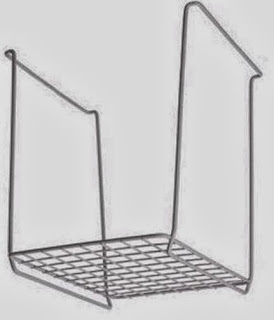It is often said that necessity is the mother of invention. A challenge sits before us, and none of the tools in our bags of tricks seems adequate to handle the job. That was certainly the situation for me in one particular college class many years ago. Meeting that challenge changed the way I approached studying for every test ever since.
The class was called "School and Society," basically a history of education. The professor was exceptional. The class was extremely interesting. It was also extremely intense. But one thing was odd. Class meeting after class meeting came and went with no mention of a test.
Finally, the day came when a test was announced, a test which would consist of
one question. When the professor gave examples of questions from past tests, it was obvious that a general knowledge of the material would not be enough. To be prepared, I would need to be able to recite all of my notes from memory from beginning to end or from any starting point in the middle. I counted the pages. There were
57 of them, and the information was pretty detailed. While I had always been good at memorization, nothing had prepared me for this. I needed a new approach.
As luck would have it, I ran across a little paperback entitled
The Memory Book. The first page of chapter one was designed to begin a discussion of memory systems throughout the ages. It took only one page to give me what I needed to approach not only this test, but every single exam I faced through every collegiate program thereafter.
Authors Harry Lorayne and Jerry Lucas talked about a technique used by the ancient Romans and Greeks when they delivered long speeches from memory. The orator prepared the speech by associating each part of it with a place in his home. The first point would be associated with the front door, the next point with the foyer, etc. As the orator delivered the speech, he would take a "mental trip" through his house, talking about each room as he came to it. This technique was called "loci," or "places." It is from this early memory technique that the expression "in the first place" originated.
I read no further. Starting at the beginning of the 57 pages, I began associating each major topic with a room. I visualized certain people in each room, people discussed at that point in my notes. I mentally placed pictures and posters on the walls, each reminding me of details about that topic.
As it turned out, I needed more than the rooms in my house. I included the music building and the church I attended at that time. But when all was said and done, I could literally recite the entire 57 pages as I mentally walked through each room in my house, the music building, and the church. Now I was ready!
The one-question test required me to discuss the history of American education from its beginnings to the point where our class discussions had stopped. That material turned out to be the final 10 pages of my notes. I was able to supply every detail about those 10 pages.
I made an "A," but more importantly, I had a technique that would serve me well through four graduate programs and all of the exams and "comps" that would accompany them. After learning about "places," the lowest I made in any class was an "A."
I have thought a great deal about
The Memory Book since that experience 30 years ago. I was delighted to have found something so simple that made such a huge difference. Maybe it could make a difference for you as well.
 Recently, I observed an ingenious idea. A middle school student was using two locker dividers. One was sitting on he floor of the locker. The other was turned upside down and was hanging from two coat hooks located at the top of the locker on each side. This student had tripled the usable amount of locker space.
Recently, I observed an ingenious idea. A middle school student was using two locker dividers. One was sitting on he floor of the locker. The other was turned upside down and was hanging from two coat hooks located at the top of the locker on each side. This student had tripled the usable amount of locker space.















